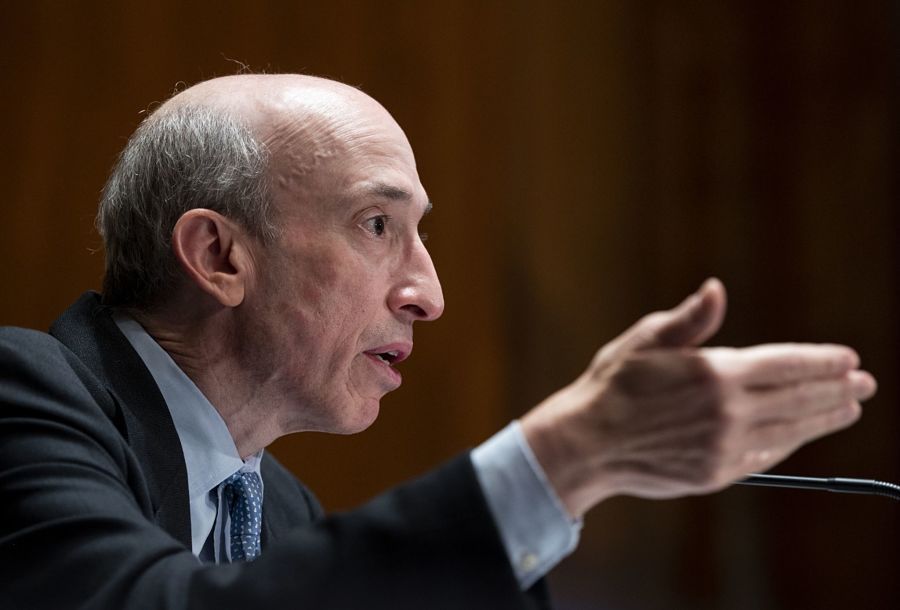Late last year, Jonathan Crompton, Hong Kong-based partner at Reynolds Porter Chamberlain, advised a medical professional based in South Asia who fell victim to crypto fraud after a seemingly innocuous WhatsApp message from a Hong Kong number.
Perpetrators of the scam used Hong Kong phone numbers to strike up virtual friendships with victims, gain their trust, and then ask them to deposit funds into accounts on fake cryptocurrency exchanges. The scammers eventually stopped replying to messages, but not before persuading victims to convince their friends and family to deposit funds with the fake platform, too, explains Crompton.
He says the victim he worked with, and that person’s friends, lost a “large portion” of what they thought they had invested. “I know some very intelligent, sensible people that have fallen victim to scams, but they all have the same response, which is: how could I?” he adds.
Scams involving cryptocurrencies have ballooned in recent years. Hong Kong witnessed 2,336 crypto-related scams in 2022, up 67 per cent from the year before, according to police figures. The frauds involved funds worth HK$1.7bn ($217mn) — a 106 per cent increase on 2021.
While the full scale of the problem is hard to quantify accurately, says Crompton, the number “just keeps going up”.
For lawyers in Hong Kong, addressing fears over the potential for digital assets to enable scams and fraud is a key concern. They are also helping the territory’s Securities and Futures Commission tread the fine line between protecting investors and allowing crypto groups enough freedom to make the city attractive as a base.
But Hong Kong’s balancing act comes as rival jurisdictions have sought to increase their scrutiny of the sector, following several high-profile crypto-business collapses — such as the multibillion implosion of exchange FTX, and the bankruptcies of the lending unit of broker Genesis Digital and the Singaporean hedge fund Three Arrows Capital.
In September, just before Hong Kong launched a high-profile crypto push, RPC’s Crompton became a founding committee member of the territory’s Crypto Fraud and Asset Recovery Network. This group brings together lawyers, accountants and industry players to raise awareness of crypto fraud in Asia. The lawyers also seek to help victims to reclaim their stolen assets.
That second task is more difficult, says Crompton. In traditional finance, “you tend to know who the bad guys are”, he notes. But crypto fraudsters employ aliases to hide their identities and digital wallets used to store defrauded cryptocurrency are usually anonymous.
Additionally, crypto exchanges often fail to react to legal letters notifying them of suspicious activity whereas traditional banks generally would, points out Crompton.
“I don’t think it’s right to say that exchanges don’t understand,” he says. “A lot of the bigger [crypto] exchanges have very good lawyers in them. I think they’re just overwhelmed with the number of letters they’ve received.”
In theory, courts can require exchanges to reverse transactions. But there is a lack of precedent in completing that process and it can be technically difficult or impossible to force the return of cryptocurrencies. Also, many victims of crypto fraud are already short of funds, meaning most clients are unwilling or unable to take cases to their conclusion.
“We’re looking for somebody who has additional finances and is prepared to go after the assets that they’ve lost,” he says, “and, at the moment, we just haven’t really found that victim who is prepared to potentially throw good money after bad on that.”
One solution he suggests is that several clients could pool assets to create joint entities and share the proceeds of any winnings from recovery proceedings.
Gary Tiu, head of regulatory affairs at BC Technology Group, the parent company of OSL — one of just two crypto exchanges to receive a licence from Hong Kong’s financial regulator — believes the city’s crypto push will encourage more investors to use licensed platforms, which should make sure they are better protected from scams, hacks or theft.
But, he warns, the regulatory push could incentivise some retail investors to use riskier, unlicensed exchanges outside Hong Kong’s regulatory remit. There is also a risk, he adds, that publicly available information about licensed exchanges will increase opportunities for scammers. OSL, for example, has been targeted by scammers who contact victims pretending to be members of its management — in effect, using the company’s reputation against it.
“It’s very hard to tell people not to fall victim to very, very convincing scammers,” says Tiu. “[They] will also find it easier to pick up certain names . . . and impersonate them using all . . . the tricks we usually see in a lot of the online scams, like phishing.”
Lawyers are trying to find a way to reconcile the regulator’s concerns about investor protection with the ambitions of crypto groups, to deliver a more freewheeling way of operating, says Michael Wong, partner at Dechert. He advises hedge funds and exchanges on gaining licences from the Hong Kong regulator.
It’s very hard to tell people not to fall victim to very, very convincing scammers
“They [the SFC] want to open up the industry but, at the same time, they always have concerns about investor protection,” says Wong.
The SFC says it has reminded investors of the risks involved in using virtual assets platforms and will ensure its regulatory regime “strikes the appropriate balance between investor protection and support for innovation”.
Wong and Jason Chan, a Dechert associate, have already helped crypto-only hedge fund Fore Elite Capital Management acquire a licence from the SFC, and then expand the conditions of that licence to allow it to invest in the top 100 most traded cryptocurrencies and derivatives. Previously, the company’s licence permitted nothing but long-only trading positions in the top 20 coins.
The SFC’s growing expertise in dealing with cryptocurrencies following Hong Kong’s digital assets push has also helped Dechert increase the regulator’s comfort level with a “riskier, aggressive strategy”, says Wong.
The law firm has had a number of inquiries from groups seeking to find out about the “widest scope” the SFC will license them to operate under.
“That’s how the crypto world was formed; they wanted a free world free of regulations,” Wong observes. “We are . . . striking a balance between the free world and what’s actually happening in reality.”
Hong Kong counsels seek better crypto protections



